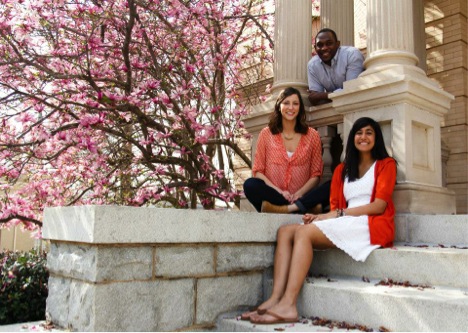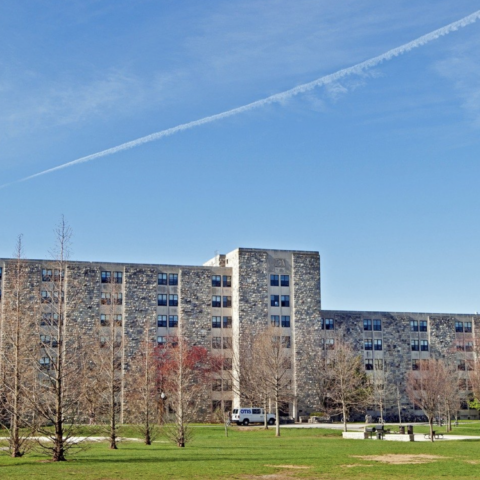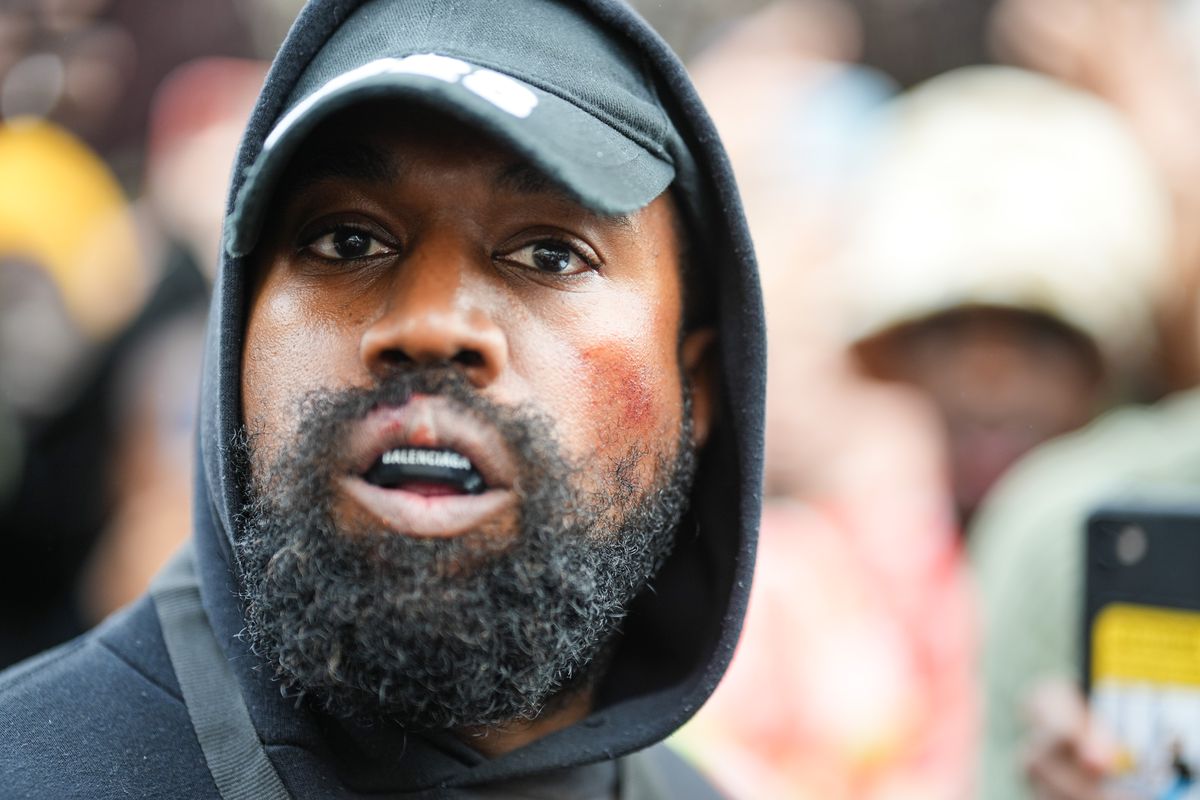Polls opened on Oasis for SGA elections yesterday. There are two SGA Executive tickets running. I was able to speak to Zek Osibanjo, Megan Ernst, and Shivani Vakharia about BridgeUGA.

Let’s start by introducing yourselves.
Shivani: I’m a third-year International Affairs and Political Science major. I’m running for treasurer. My goal is to make campus seem a little smaller. I know through small clubs allocation you have a lot of one-on-one time with different organizations and you get to know them better to see what their goals are for the year.
Megan: I’m a junior Journalism and Political Science double-major also doing a concurrent Masters of Public Administration. I’m running for vice president and my goals are to make SGA more accessible and inclusive. Senate is especially intimidating to people on the outside. I want to make the process more transparent and make it so that we as a legislative body are working on things that really address student needs and the most important issues to our student body. Also giving a diversity of voices so its not just one section of campus’s student needs, but that everyone’s having their voice heard.
Zek: I’m a third-year studying Management Information Systems. The reason I am running is because I was in senate my sophomore year, and when I was in senate I wasn’t used to my full potential. I wasn’t exactly doing what needed to be done. It focused more on the exclusive nature of SGA. I feel like when they start off in freshman programs they build bonds with other people, and then they grow that way. So people who are outsiders to SGA may come into SGA and may not always have a place and also don’t fit in or aren’t being used for what they should be doing. That’s one of the things I want to do. I want to make SGA more open to the students. I want to make sure that all students are included in SGA and that SGA is a voice for every student.
What is Bridge?
Z: Bridge is a connection between students and student government, and between students and other students. We’re trying to make sure campus is as inclusive as possible, so we want to bridge the gap between all areas of campus. It’s a movement.
What would you say to a student who feels that SGA doesn’t speak for him or her?
Z: Those are the students whose voices we want heard. Those are the students that we’re looking out for. Those are the students we’re targeting and making sure that they do have a place in SGA, because at the end of the day we’re representing 34,000 students, and if there’s something they don’t want represented, we want to make sure we also hear their side of the story. I think that’s what we’re targeting. I think the best way we can do that is by making sure we put SGA in the best light possible and making sure we’re out there doing our job and reaching out to students. I think that goes back to senate accountability; making sure that senators are doing their jobs. When I’ve been talking to people through this whole campaign, most people don’t know who their senators are. I feel like going back and making sure the senators are accountable to the students they represent is a big thing. Once students feel that SGA is doing something for them, they want to be a part of this organization. I want to make them feel as comfortable and as included in SGA as possible.
You guys talk a lot about being more inclusive, how do you think SGA has become less inclusive than it could be?
M: I don’t think that it’s intention is to be exclusive. SGA does do great things. I just think that when you’re bringing people into a room that aren’t fully representative of the entire campus you’re going to get a distorted viewpoint of what needs to be done and how to do that. I think that part of it is just that it feels like this thing that has a barrier to entry. We as students don’t know that anyone can join committees. Anyone can show up and join the diversity committee or the academic affairs committee, and those things are really important. Anyone can come to Senate and bring things to the floor. The administration for this past year has done a great job of opening that up even more. Internally, it feels separated from campus, even though they do try to reach out. Part of that is being more aware of their constituents and the people they represent and the full breadth of that. Like having Senators be more accountable to their colleges and understand what their needs are and what they care about. Also having student life seats be fully representative of the diversity of voices, because 15 student life seats isn’t the whole breadth of diversity on campus either. It’s being more aware of the system and working to combat them.
What do you want students to know about Bridge?
Z: Don’t just be a student, be a Dawg. At the end of the day, we’re all here to be a student and to get a degree. There’s more to being a Bulldog than just getting a degree. It’s a lifestyle, it’s a movement, it’s bigger than us. When we all come together and we all walk through the Arch together, there’s more to the university. It’s a family, it’s a community, it’s the Bulldog Nation.
M: There’s a value system that makes us different from every other college. If we say we care about things like respect, stewardship, the pillars of the arch, and all those things that make us swell with pride as students. We have to better represent that in our daily lives on campus.
S: We’re real people with real problems, and we’re trying to have real solutions.

